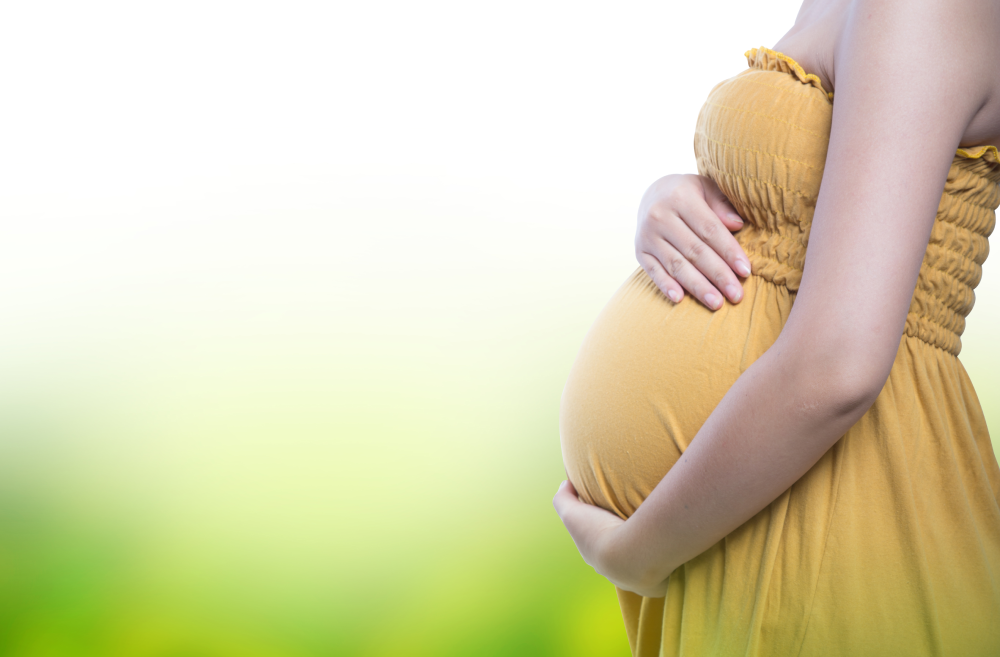Table of Contents:
- Why Protein Matters in Pregnancy and Postpartum
- Plant Protein vs Animal Protein: What’s the Difference?
- Is Plant Protein Safe During Pregnancy?
- Key Nutrients to Pair With Protein for New Moms
- Practical Ways to Add Plant Protein
- FAQs
The journey into motherhood is both beautiful and demanding. During pregnancy and postpartum, your body works harder than ever—nourishing new life, recovering from childbirth, and adjusting to hormonal changes. Nutrition plays a vital role in this phase, and one common question arises: Is plant protein safe for new moms?
The answer is yes—but with some important considerations. Let’s break it down.
Why Protein Matters in Pregnancy and Postpartum
Protein is the building block of life. For mothers, it supports:
-
Fetal growth & development: Especially important for brain, muscle, and tissue formation.
-
Placental health: Adequate protein ensures proper nutrient transfer.
-
Maternal recovery: Postpartum, protein aids tissue repair, wound healing, and milk production.
-
Energy & resilience: Helps balance blood sugar, reduce fatigue, and support hormone regulation.
The Recommended Dietary Allowance (RDA) increases during pregnancy and lactation. According to the research, protein requirements rise from 0.8 g/kg/day to 1.1 g/kg/day during pregnancy and up to 1.3 g/kg/day while breastfeeding.
Plant Protein vs Animal Protein: What’s the Difference?
Traditionally, animal sources like eggs, dairy, chicken, and fish have been favored for protein. However, plant protein powders and supplements have become popular—especially for women seeking lighter, cleaner, and easier-to-digest options.
Benefits of Plant Protein
-
Easier digestion: Many moms report less bloating compared to whey protein.
-
Naturally rich in fiber & phytonutrients.
-
Lower in allergens: Dairy-free and lactose-free, ideal for sensitive stomachs.
-
Supports heart health: Often paired with lower fat and cholesterol content.
Points to Watch
-
Amino acid profile: Some single-source plant proteins (like rice protein) lack certain essential amino acids. Blends or enriched powders solve this.
-
Additives & sweeteners: Some plant powders add artificial flavors—check labels carefully, especially during pregnancy.
Is Plant Protein Safe During Pregnancy?
Yes, plant protein is considered safe if it:
-
Comes from clean, tested sources
-
Has a complete amino acid profile
-
Contains no heavy metals or harmful fillers
Studies show that plant-based diets during pregnancy—when balanced—can provide sufficient protein and nutrients. Supplements can bridge gaps if daily intake from food isn’t enough.
Postpartum Nutrition: Why Plant Protein Fits Well
After delivery, the body undergoes recovery while also producing milk (if breastfeeding). Protein demands increase, but appetite, time, and energy may decrease.
This is where plant protein powders become practical:
-
Quick meal replacement: Smoothies or shakes are easy to prepare.
-
Gentle on digestion: Less likely to cause stomach upset during a sensitive phase.
-
Supports lactation: Amino acids in protein help build prolactin and other milk-regulating hormones.
Key Nutrients to Pair With Protein for New Moms
Protein works best when supported by other nutrients crucial during pregnancy and postpartum:
-
Calcium & Vitamin D: For bone health and muscle function (e.g., DameHealth Calcium D).
-
Iron & Folate: To replenish blood and prevent anemia.
-
Magnesium: To reduce muscle cramps and support sleep (e.g., DameHealth Magnesium & Tart Cherry).
-
Choline & DHA: For baby’s brain development (e.g., Pregnancy Support Plus).
- DameHealth Plant Protein: Designed for Women
Unlike generic powders, DameHealth Plant Protein for Women is formulated specifically for women’s needs. It’s:
-
Plant based & clean: Free from dairy, soy isolates, and unnecessary fillers.
-
Complete protein blend: Pea protein isolate for all essential amino acids.
-
Low calorie, high protein: Supports weight management postpartum without compromising nutrition.
-
Hormone-friendly: Crafted with women’s metabolic health in mind, safe for both pregnancy and postpartum.
- Common Myths About Plant Protein in Pregnancy & Postpartum
Myth 1: Too Much Protein Is Dangerous in Pregnancy
It’s true that extreme protein intake without balancing carbs and fats isn’t advisable (the so-called “protein toxicity”). But for most women, the concern isn’t over-consumption—it’s under-consumption. Research shows that many expectant mothers fall short of the 1.1 g/kg/day recommended intake. The key is to aim for balance, not restriction.
Myth 2: All Protein Powders Are Unsafe for Pregnancy
Not all protein powders are created equal. Some commercial products contain artificial sweeteners, heavy metals, or unnecessary additives. However, clean, third-party tested formulations—like plant protein blends designed for women’s health—are safe when taken as part of a balanced diet.
Myth 3: Plant Protein Isn’t Complete
Single-source proteins can lack one or two essential amino acids. But blends or fortified plant powders solve this, delivering a complete amino acid profile comparable to animal protein. DameHealth Pure Plant Protein is one such example, designed to meet women’s unique needs.
Myth 4: Protein Shakes Cause Weight Gain Postpartum
Protein alone doesn’t cause weight gain—caloric surplus does. In fact, plant protein powders can support healthy postpartum weight management by increasing satiety, preserving lean muscle, and stabilizing blood sugar. For new moms with limited time, a quick shake can be a nutrient-dense option.
Myth 5: Supplements Replace Real Food
No supplement should be viewed as a substitute for whole foods. Instead, think of protein powders as insurance—filling gaps on days when appetite, energy, or time limit your ability to prepare balanced meals. They’re tools, not replacements.
Practical Ways to Add Plant Protein
- Smoothies with banana, spinach, and plant protein
- Oats + almond butter + plant protein
- Protein energy bites (dates, nuts, and powder)
- Quick shakes for breakfast or snack
Plant protein is not only safe for new moms—it can be a game-changer during pregnancy and postpartum. It supports energy, recovery, lactation, and long-term health without the digestive discomfort often linked with whey.
The key is to choose clean, complete, women-focused formulas like DameHealth Plant Protein for women—so you can meet your needs while nurturing new life.
FAQs
Q1. Can I take plant protein while breastfeeding?
Yes, provided it’s clean, free from contaminants, and designed for women’s health.
Q2. How much protein do I need daily postpartum?
Around 1.3 g/kg/day, depending on weight, activity, and lactation.
Q3. Does plant protein help with postpartum weight management?
Yes. It promotes satiety, preserves lean muscle, and supports gradual weight recovery.
Q4. Should I stop other supplements if I use plant protein?
No. Protein works alongside prenatal/postnatal multivitamins, calcium, magnesium, and DHA.





